Internet Computer Delivers 39% Surge Driven by MISSION70 Tokenomics Plan

Internet Computer (ICP) surged 39% after DFINITY released the MISSION70 whitepaper targeting a 70% inflation reduction via supply and demand measures. On-chain data shows rising network activity and reduced exchange balances indicating strong holder confidence.
Vitalik Buterin Unveils Seven-Step ‘Walkaway Test’ for Ethereum
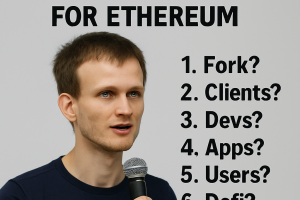
Ethereum co-founder Vitalik Buterin introduced a seven-item checklist designed to ensure the network’s resilience in the absence of its core developers. The plan covers quantum resistance, scalability via ZK-EVM, long-term state architecture, account abstraction, gas scheduling, decentralized PoS, and censorship-resistant block building.
Ethereum raises blob capacity to 14 with latest BPO fork ahead of Fusaka
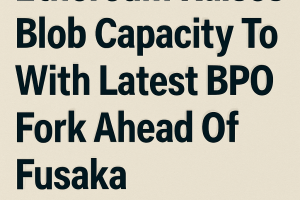
Ethereum network increased data blob capacity per block to 14 target and 21 maximum through a Blob Parameters Only fork. The upgrade enhances Layer 2 scaling potential by expanding onchain data availability, aiming to reduce transaction fees and boost throughput.
Ethereum 2026 roadmap raises validator risk amid ZK-proof shift
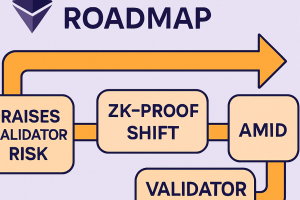
Ethereum’s planned 2026 upgrade relies on validators transitioning from block re-execution to zero-knowledge proof verification, introducing potential liveness and bandwidth risks. The roadmap includes data blob capacity increases via Fusaka and ambitious gas limit changes under the “Glamsterdam” brand.
Uniswap community approves UNIfication with fee switch and token burns
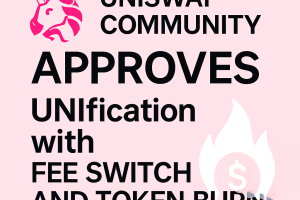
Uniswap’s governance vote passed the UNIfication proposal, activating the protocol fee switch to burn UNI tokens and consolidating operations under Uniswap Labs. A one-time 100 million UNI burn is scheduled post-timelock.
Ethereum Developers Prep for Fusaka, Second Upgrade of 2025

Ethereum developers are preparing for Fusaka, the network’s second major upgrade of 2025, scheduled for mainnet activation. Fusaka combines consensus- and execution-layer improvements via 12 EIPs, including PeerDAS for partial blob verification, to enhance scalability and reduce layer-2 transaction costs.
U.S. Bank Pilots Stablecoin Issuance on Stellar Blockchain
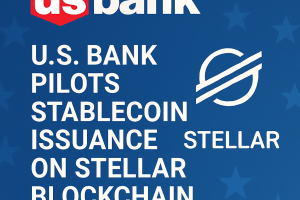
U.S. Bank commenced a pilot program to test issuance of custom stablecoins on the Stellar network in partnership with PwC and the Stellar Development Foundation. Features under evaluation include asset freezing and transaction reversal for compliance.
Uniswap Proposes Sweeping ‘UNIfication’ With UNI Burn and Protocol Fee Overhaul
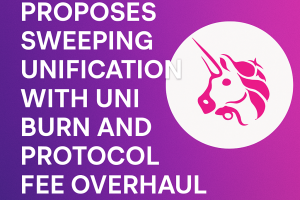
Proposal unites Uniswap Labs and Uniswap Foundation under a single governance plan. Plan would activate protocol fees, burn millions of UNI tokens and consolidate ecosystem teams. New fee mechanisms aim to align incentives and enhance protocol growth.
Ethereum Developers Lock In Fusaka Upgrade for Dec. 3 With PeerDAS Rollout
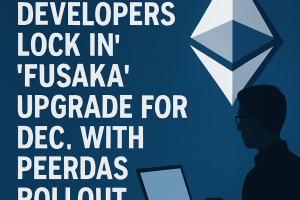
Ethereum core developers have scheduled the Fusaka network upgrade for December 3 following a consensus call. The upgrade’s main innovation, PeerDAS, will reduce bandwidth by enabling partial data verification. Activation is set for slot 13,164,544 at 21:49 UTC.
Ethereum’s Fusaka Upgrade Completes Final Hoodi Test Ahead of Mainnet Launch

Ethereum’s Fusaka upgrade finished its last test on the Hoodi testnet, marking the final dress rehearsal before mainnet activation. Developers will set a launch date at least 30 days after the test, targeting late November or early December.
Circle Launches Arc Blockchain Testnet with Major Institutions
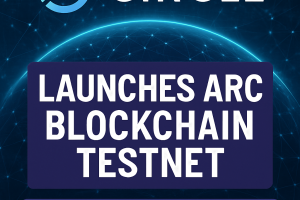
Circle deployed the public Arc blockchain testnet on Oct. 28 with over 100 institutions, including BlackRock, Visa and HSBC. Arc supports USD-based fees, sub-second settlement and aims for future decentralization.
BNB Chain Integrates Chainlink to Onboard Official U.S. Economic Data Onchain

BNB Chain adopted the Chainlink Data Standard to make trusted US Department of Commerce data, such as GDP and PCE price index, available onchain. The integration aims to enhance reliability for DeFi, RWAs and prediction markets.
Solana’s Alpenglow Upgrade to Deliver Millisecond Finality and Slash Fees
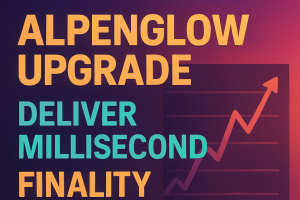
VanEck’s report details Solana’s upcoming Alpenglow consensus overhaul, promising finality cuts from 12 seconds to 150 milliseconds, off-chain voting, reduced gossip overhead, and ticket-based validator costs. The upgrade enhances decentralization by lowering barriers for smaller nodes, boosts block capacity by 25%, and powers new P-token efficiency.
VanEck Details Significant Impacts of Ethereum’s Fusaka Upgrade
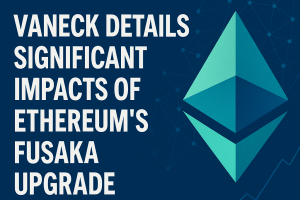
Asset manager VanEck outlined how Ethereum’s upcoming Fusaka upgrade will reduce rollup data burdens via PeerDAS, enhancing layer-2 scalability and reinforcing ETH’s role as a monetary asset in a rollup-centric ecosystem.
Ripple Engineer Outlines Privacy-First Roadmap for XRP Ledger
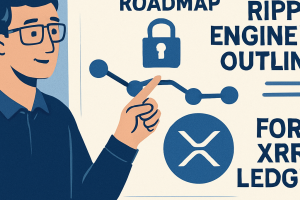
Ripple cryptographer Ayo Akinyele detailed enhancements to the XRP Ledger focusing on privacy, compliance and scalability, highlighting zero-knowledge proofs and confidential tokens. The roadmap aims to position XRPL as the institutional blockchain of choice.
LINK Gains Momentum as Plasma Integrates Chainlink Oracle Services

Chainlink’s LINK token established a higher low after a slight pullback, posting a 6.7% weekly gain. Plasma has adopted Chainlink Scale, integrating CCIP, Data Streams, and Data Feeds to support stablecoin use cases. Institutional pilots signal growing adoption.
Chainlink, UBS Advance $100T Fund Industry Tokenization via Swift Workflow
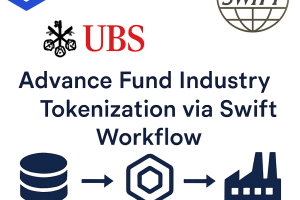
Pilot enables banks to instruct tokenized fund subscriptions and redemptions via Swift messaging, using Chainlink Runtime Environment to translate ISO 20022 messages into on-chain transactions. UBS collaboration targets over $100 trillion in global fund assets, aiming to streamline institutional access to blockchain infrastructure.
SWIFT to Develop Blockchain-Based Ledger for 24/7 Cross-Border Payments
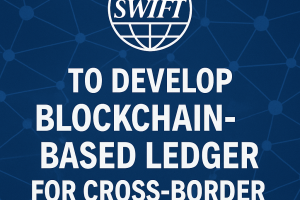
SWIFT is collaborating with over 30 financial institutions to build a blockchain-based ledger for continuous cross-border payments. The ledger, based on a ConsenSys prototype, aims to record and validate transactions in real time.
SWIFT to Develop Blockchain-Based Ledger for 24/7 Cross-Border Payments
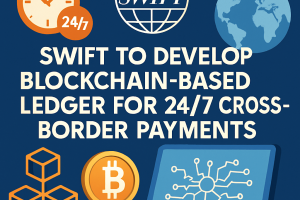
SWIFT is collaborating with over 30 financial institutions and Ethereum developer Consensys to build a blockchain-based ledger for its network, enabling continuous cross-border payments with transaction sequencing, validation, and enforcement via smart contracts.
Luke Dashjr Denies Bitcoin Hard Fork Allegations

Bitcoin developer Luke Dashjr has denied reports that he proposed a hard fork led by a trusted committee to alter the blockchain. The controversy reignited longstanding debates over censorship and protocol immutability within the community.
SharpLink Gaming set to tokenize its shares on Ethereum with Superstate

SharpLink Gaming (SBET) plans to tokenize its equity on the Ethereum blockchain through Superstate’s Opening Bell platform, issuing SEC-registered shares as native tokens. The initiative aims to explore compliant secondary trading of tokenized shares on decentralized exchanges under U.S. securities regulations.
Centrifuge Debuts First Licensed Tokenized S&P 500 Index Fund on Base Network

Real-world asset specialist Centrifuge launched SPXA, a licensed on-chain S&P 500 index fund trading 24/7 with transparent holdings. Janus Henderson serves as sub-investment manager, while Wormhole facilitates cross-chain expansion.
Fragmetric to launch first Solana DAT for South Korean market

Fragmetric Labs will form the first Solana digital asset treasury (DAT) in Korea through a reverse merger with a listed South Korean company. Partnership with DeFi Development Corp extends re-staking infrastructure for liquid staked SOL, aiming to boost network security and passive income.
Low-risk DeFi Could Drive Stable Fees on Ethereum, Vitalik Says
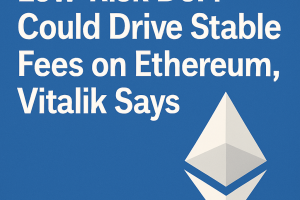
Ethereum co-founder Vitalik Buterin proposed that fee revenue from low-risk DeFi protocols, like stablecoin lending on Aave, could economically sustain the network similar to Google’s search model. He argued this aligns financial incentives with Ethereum’s cultural values.
Swiss Banks Complete First Binding Payment on Public Blockchain

Three Swiss banks executed the first legally binding interbank payment using tokenized deposits on a public blockchain in a feasibility study. The pilot confirmed immediate settlement and potential integration into automated business processes, underscoring blockchain’s efficiency for cross-institutional transactions.
London Stock Exchange unveils blockchain platform for private funds
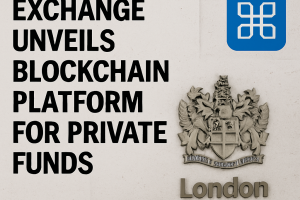
LSEG and Microsoft launched the Digital Markets Infrastructure on Azure, enabling issuance, tokenization and post-trade settlement of private fund assets. MembersCap and Archax executed the inaugural transaction. Additional asset classes planned.
Avalanche Foundation Eyes $1B Raise to Fund Two Crypto Treasury Companies
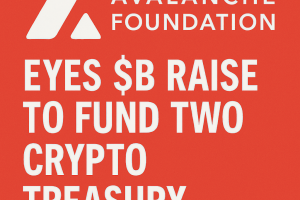
The Avalanche Foundation plans to raise $1 billion via two separate vehicles to establish US-based crypto treasury firms holding millions of AVAX tokens. A $500 million private investment is led by Hivemind Capital in a Nasdaq-listed entity, while a second $500 million SPAC deal is backed by Dragonfly Capital.
Upbit Operator Dunamu Unveils Layer-2 Blockchain GIWA
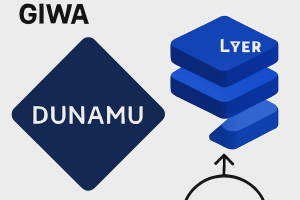
Dunamu, operator of the Upbit cryptocurrency exchange, launched its GIWA Web3 brand at the Upbit Developer Conference in Seoul. GIWA comprises the GIWA Chain, an Optimistic Rollup-based layer-2 blockchain, and the GIWA Wallet for multi-chain asset transfers. The launch follows trademark filings and aims to foster local and global developer adoption.
MegaETH Unveils Native Stablecoin with Ethena, Aiming to Keep Blockchain Fees Low
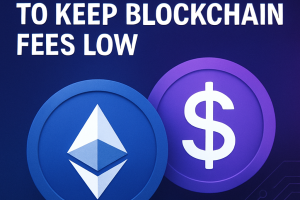
A new stablecoin called USDm launches on MegaETH in partnership with DeFi protocol Ethena. The token will be backed by Ethena’s USDtb, itself backed by BlackRock’s money market fund, and may include USDe reserves to subsidize sequencer fees on the network.
Stripe’s Tempo Blockchain Criticized for Undermining Decentralization
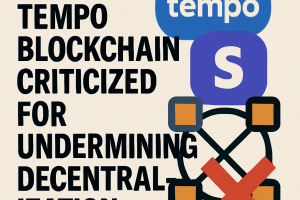
Meta’s Libra co-creator Christian Catalini argued that Stripe’s Tempo blockchain sacrifices decentralization. He cited corporate incentive structures and regulatory compromises as risks to crypto’s permissionless ethos.
Paxos Proposes USDH Stablecoin for Hyperliquid With HYPE Buybacks
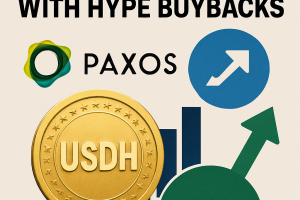
Paxos submitted a proposal to launch USDH, a fully compliant stablecoin designed for Hyperliquid under GENIUS and MiCA frameworks. The plan allocates 95% of reserve interest to repurchase HYPE tokens, with distributions to validators, protocol partners and users to align ecosystem incentives.
Stripe and Paradigm Incubate Tempo Blockchain for Stablecoin Payments
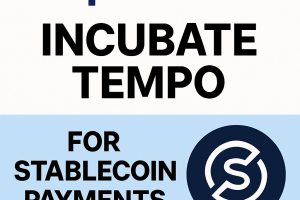
Paradigm and Stripe have launched a private testnet for Tempo, a payments-focused blockchain capable of over 100,000 transactions per second with sub-second finality. Design partners include Visa, Deutsche Bank and OpenAI, with support for stablecoin gas payments and Ethereum compatibility.
Stellar Protocol 23 Upgrade Triggers Exchange Trading Pauses
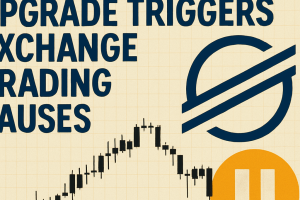
Major exchanges including Upbit suspended XLM trading ahead of the Stellar Protocol 23 network upgrade to ensure stability during the transition. XLM price action consolidated between $0.36 and $0.37, with resistance at $0.37 and support at $0.36. Participants await post-upgrade price levels and network performance.
Stellar’s Protocol 23 Upgrade Prompts Trading Pauses on Upbit

Upbit suspended XLM trading ahead of Stellar’s Protocol 23 upgrade to safeguard network stability. XLM price consolidated between $0.36 and $0.37, with traders eyeing key resistance at $0.45 and support near $0.30 post-upgrade.
Japan Post Bank unveils DCJPY digital yen for depositors

Japan Post Bank announces launch of DCJPY, a fully fiat-backed digital yen token, by fiscal 2026. Developed in partnership with DeCurret DCP, DCJPY allows depositors to convert yen into a 1:1 blockchain-tokenised currency for instant settlement of digital assets and securities transactions, enhancing payment efficiency.
Ethereum to sunset Holešky testnet post-Fusaka upgrade
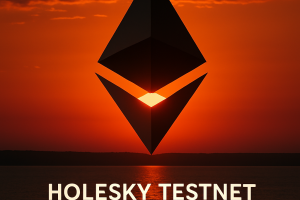
Ethereum Foundation announces planned shutdown of the Holešky testnet after completion of the Fusaka fork, with migration to the Hoodi testnet. Holešky has served for over two years testing protocol upgrades including Dencun and Pectra. Migration will occur two weeks after Fusaka mainnet activation.
Bitcoin’s BRC20 Token Standard Launches ‘BRC2.0’ Smart Contracts
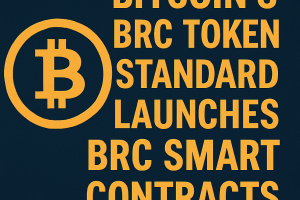
The new BRC2.0 standard extends Bitcoin’s Ordinals protocol, enabling EVM-style smart contracts on the Bitcoin blockchain. Developers can now issue fungible tokens and deploy programmable logic directly on Bitcoin, broadening on-chain capabilities.
Bitcoin Faces Fee Crisis That Threatens Network Security: Can BTCfi Help?
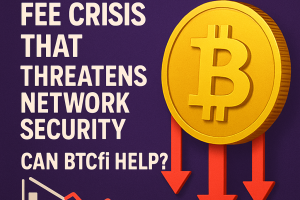
Bitcoin transaction fees have dropped over 80% since April 2024, pressuring miner incentives and risking network security as block rewards halve. BTCfi—onchain DeFi on Bitcoin—could restore fee revenue by driving sustained onchain activity.
Ethereum Foundation pauses open grant applications
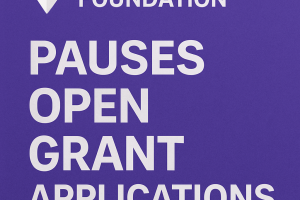
Ethereum Foundation temporarily paused open grant applications for its Ecosystem Support Program to shift from a reactive to a proactive funding model. Support for existing grantees continues through Office Hours. New requests will resume under a revised process in Q4 2025.
Public Token Treasuries and Asset Tokenization Are Positive but Carry Risks

Public-company bitcoin treasuries and tokenization of real-world assets (RWAs) are accelerating institutional capital inflows, according to CZ. Stablecoins, treasury bills and real estate tokens are integrating into crypto. Future bear markets may expose treasury firm failures.
Solana Targets Near-Instant Finality as Alpenglow Upgrade Heads to Vote

Solana developers have proposed the Alpenglow consensus upgrade to replace Proof-of-History and TowerBFT with Votor and Rotor, aiming to cut finality times from over 12 seconds to approximately 150 milliseconds and enhance network resilience.
Chainlink and Pyth Selected to Deliver U.S. Economic Data on Blockchain
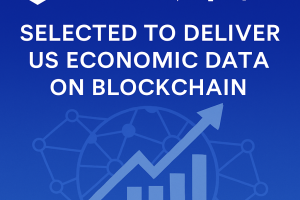
Chainlink and Pyth have been chosen by the U.S. Department of Commerce to provide official macroeconomic data feeds, including GDP and the PCE Price Index, onchain across ten blockchain networks. Feeds will update on traditional release schedules.
Google Advances Layer-1 Blockchain for Finance
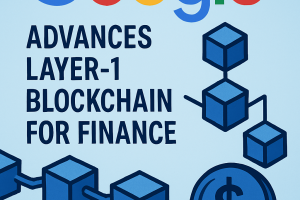
Google Cloud’s Universal Ledger (GCUL) is moving toward a 2026 launch with CME Group integration completed and broader trials planned. The platform will support Python smart contracts and promote neutral infrastructure for institutions, differentiating from Stripe Tempo and Circle Arc. Details on performance and programmability have been outlined by head of Web3 strategy Rich Widmann.
Bitcoin Liquid Staking Gains Momentum as Lombard Launches BARD Token and Foundation
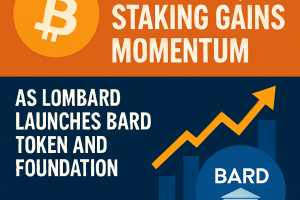
Lombard launched the Liquid Bitcoin Foundation and $BARD token with a $6.75M sale to onboard LBTC holders. Bitcoin liquid staking market cap is $2.5B, with LBTC at $1.4B, enabling BTC in DeFi applications.
EU Exploring Ethereum and Solana for Digital Euro Infrastructure
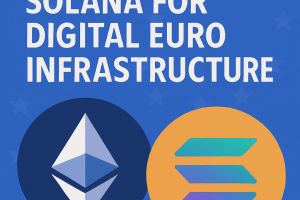
The European Central Bank is reportedly evaluating public blockchains such as Ethereum and Solana for its digital euro design, marking a potential shift from private ledger models to open networks to enhance interoperability.
Ethereum News: BlackRock ETF Flows and Network Activity Drive Price Breakout
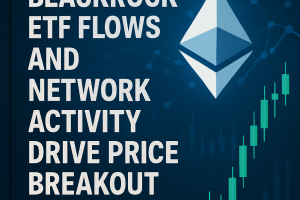
BlackRock’s ETHA ETF attracted USD 1.02 billion inflows on August 11, now holding nearly 58% of all Ethereum ETF assets. Robust network usage—1.74 million daily transactions in early August and 46.7 million in July—fuelled a bullish breakout above key resistance. Analysts highlight USD 4 150 as critical support; a weekly close above USD 4 550 may signal fresh highs, while breaks below USD 4 150 could see a correction to USD 3 650–3 750.
Early Bitcoin web domains from 2010 head to auction

A collection of over 280 Bitcoin-related .com domains, many registered shortly after Bitcoin’s 2009 launch, is up for auction as a single portfolio. Names span key sectors like payments, exchanges and infrastructure, reflecting early digital currency branding.
Japanese Startup JPYC to Launch First Yen-Pegged Stablecoin After Licensing
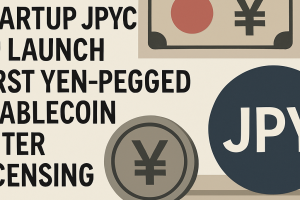
JPYC, a Tokyo‐based fintech, will issue Japan’s first yen‐pegged stablecoin following a new license. Backed by domestic savings and government bonds, the token aims to serve institutional clients initially and expand overseas to enable digital yen payments globally.
Why Circle and Stripe are launching their own blockchains
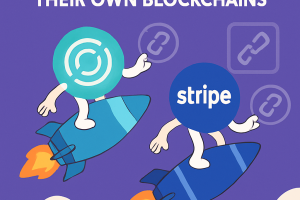
Circle and Stripe unveiled proprietary settlement networks, Arc and Tempo, to host stablecoins and tokenized assets on dedicated blockchains. Firms aim to boost control, reduce costs, embed compliance features, and compete with existing Layer 1 networks in high-throughput payments.
Stripe appoints Paradigm’s Matt Huang as CEO of new Tempo blockchain

Stripe has named Matt Huang, co-founder and managing partner of Paradigm, as chief executive of its forthcoming layer-1 blockchain, Tempo, designed for high-performance payments and Ethereum compatibility. The move aligns with a trend of stablecoin-focused networks and follows the passage of the GENIUS Act, which has bolstered institutional interest in regulated digital asset infrastructure. Launch timing and token plans remain undisclosed.
Asia Morning Briefing: Tokenized Assets Will Eclipse DeFi, Chronicle Founder Niklas Kunkel Says
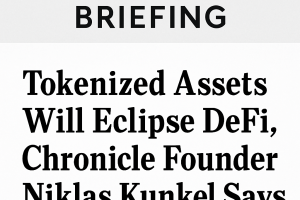
Chronicle announced a partnership with Grove Protocol to support a $1 billion tokenized asset allocation in on-chain credit markets. Founding oracle provider Chronicle outlined how emerging tokenized real-world assets could inject trillions into DeFi and become central to future risk management frameworks.
Fundamental Global files $5 B shelf for Ethereum treasury strategy
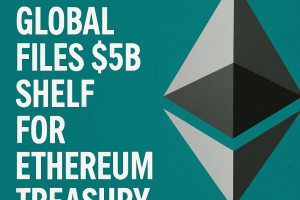
Nasdaq-listed Fundamental Global filed a $5 billion shelf registration with the U.S. SEC to support its Ethereum accumulation plan. The initiative targets a 10 percent network stake, positioning the firm among the largest corporate ETH holders.
New SHIB Burn Mechanism Introduced Through Gaming Rewards

Shiba Inu has unveiled a gaming-integrated burning mechanism that rewards players while reducing token supply. The initiative aims to bolster tokenomics by burning SHIB via Shibarium transactions and is part of a broader decentralization roadmap.
SEC Green Light on Liquid Staking Sends ETH Past $4K, Spurs Broad Staking and Layer-2 Rally

SEC clarification on liquid staking boosted Ethereum above $4,000 and drove double-digit weekly gains in layer-2 tokens such as OP, Blast and MNT. Regulatory clarity may attract institutional capital into DeFi yield products.
Standard Chartered forms joint venture to issue stablecoins in Hong Kong
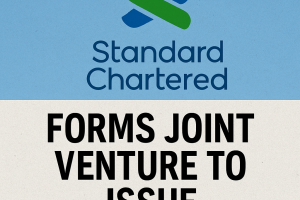
Standard Chartered has created a joint venture, Anchorpoint Financial, with Animoca Brands and HKT to seek a licence from the HKMA to issue fiat-pegged stablecoins following the enactment of Hong Kong’s stablecoin law. The move comes days after the new regulatory framework took effect on August 1, aiming to bring clarity and oversight to stablecoin issuance.
Solana’s Seeker Phone Enhances Crypto Usability with Streamlined Design
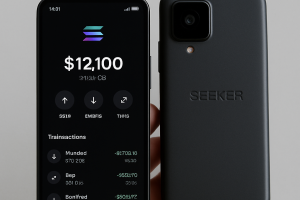
Solana Mobile’s second-generation Seeker smartphone has begun global shipping, delivering a lighter, faster device with integrated Seed Vault security and a mobile-native dApp store. Preorders exceeded 150,000 units across more than 50 countries, highlighting demand among active blockchain users.
Circle co-founder to create ‘AI-native’ bank after $18M raise

Sean Neville, co-founder of Circle, announced the launch of Catena Labs with $18 million in funding led by a16z Crypto to build the first fully regulated AI-native financial institution. The platform will leverage stablecoins for AI agent transactions, integrate an open-source Agent Commerce Kit for identity verification, and employ AI-specific risk and compliance controls.
Solana’s Seeker Mobile Crypto Phone Begins Global Shipments
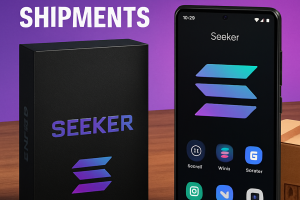
Solana Mobile’s Seeker smartphone, designed for crypto-native usage, began shipping after pre-orders exceeded 150,000 units across 50 countries. The device improves battery life and usability over its Saga predecessor, targeting weekly on-chain transactors. The Seeker delivers mobile-first wallet integration and sub-second transaction speeds on the Solana network.
Babylon Launches Trustless Bitcoin Vaults Using BitVM3 Framework
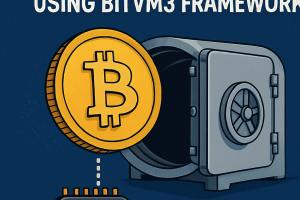
Babylon introduced trustless Bitcoin vaults leveraging the new BitVM3 framework to enable BTC holders to deposit without intermediaries. The system uses off-chain computing and zero-knowledge proofs, aiming to facilitate BTC collateral in DeFi applications and native staking rewards. The white paper details on-chain vault security and programmable withdrawal conditions.
Base Says Sequencer Failure Caused Block Production Halt of 33 Minutes
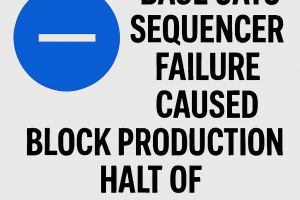
Block production on Coinbase’s Base network was halted for 33 minutes due to a sequencer failover that did not recover automatically after on-chain congestion. Engineers manually intervened to restore operations, and Base plans infrastructure changes and enhanced test coverage to ensure backup sequencers are fully provisioned prior to failover events.